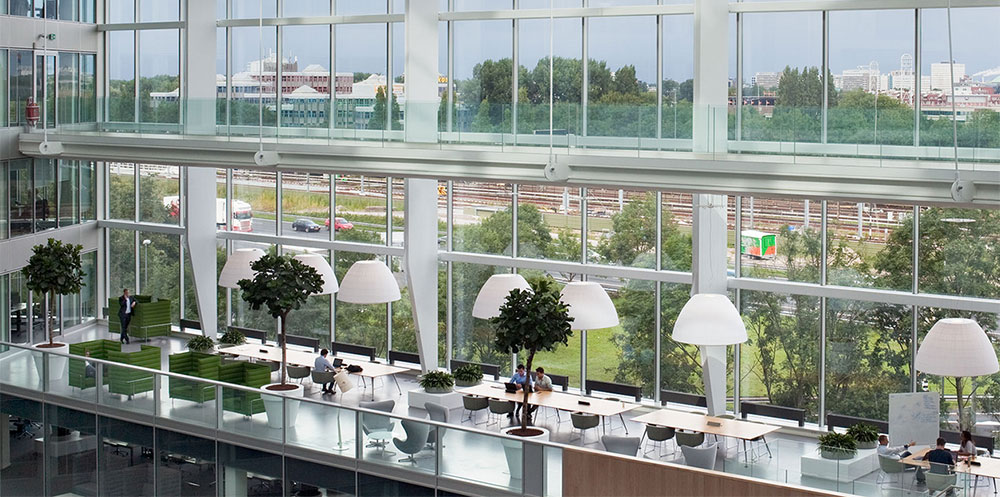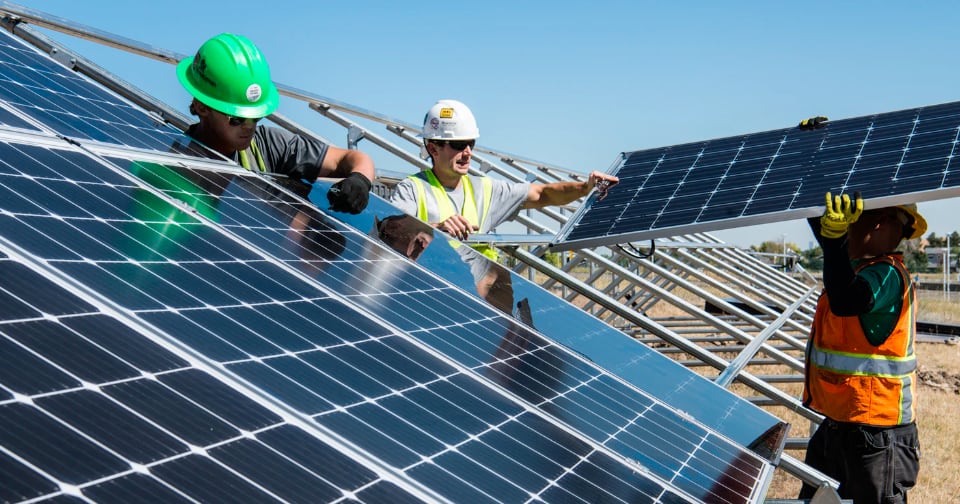How can the protection of the environment create new jobs?

Most countries in the world try to lower as much as possible net emissions in the energy system. In fact, some countries have set plans to action in order to lower in the future net emissions in the energy system down to zero.
Researchers say that doing so will deliver socio-economic benefits, in terms of jobs and overall welfare. According to an IRENA study about renewable energy, this transition to achieve the 1.5 C Paris Agreement goal opens jobs in renewable energy, energy efficiency, electrification, and green fuels.
The survey focuses on the fact that investing in energy transition technologies creates close to three times more jobs than fossil fuels do for every million dollars of spending. “But the energy transition also entails the phase-out of fossil fuels, which currently contribute a significant share of energy sector employment.
At the global level, the employment balance is positive, with the 1.5°C scenarios providing an increase of total energy sector jobs over currently planned activities” the survey adds. New jobs can be created in the fields of academic knowledge and research, testing, manufacturing, installing, operating, and maintaining renewable energy technologies. Of course, the job outcomes depend mainly on each country’s readiness for renewable energy and the structure of the economy.
IRENA’s study indicates that the energy transition affects all the economic sectors. More specifically, the energy transition has effects not only along the value chains of renewable energy technologies but also in energy-efficient appliances and machines and overall other products and services necessary to make work the whole chain.
Transition investments bring new demand for goods and services and growing disposable income due to more jobs and energy savings. As the survey states, “overall, this contributes to additional growth. But it also induces shifts in economic structures, prompting adjustments in the workforce with regard to qualifications and skills. Policies need to be introduced with foresight and at an early stage to be ready for the structural change and “stockpile” the right skills”.
Also, the survey states that the distributional effects are multiple but need to be addressed adequately for a just transition. For example, vulnerable groups, regions, and countries with insufficient access to health, infrastructure, and energy are less equipped to deal with the pandemic, according to the survey. The health crisis joins global warming-related challenges such as wildfires, heatwaves, flooding, droughts, and rising climate migration. The energy transition can improve resilience by improving energy access and more distributed, democratic ownership of energy resources. Policy measures that not just promise but ensure that no one is left behind will increase public acceptance.
It is worth mentioning that in terms of accelerating the energy transition international co-operation between countries should be strengthened further. The survey concludes that “coordinated government action is needed at several levels to make suitable rules governing these new markets, harness the relevant technical, economic, social and environmental expertise and ensure sufficient cohesion and unity in pursuit of shared goals”.
The top 3 world’s greenest cities are Copenhagen (Denmark), Reykjavik (Iceland), and Curitiba (Brazil). Also, San Francisco (United States) is one of the world’s greenest cities. Furthermore, the list of the world’s greenest cities includes Frankfurt (Germany), Vancouver (Canada), Kigali (Rwanda), and Ljubljana (Slovenia).
Bring the best of the CEOWORLD magazine's global journalism to audiences in the United States and around the world. - Add CEOWORLD magazine to your Google News feed.
Follow CEOWORLD magazine headlines on: Google News, LinkedIn, Twitter, and Facebook.
Copyright 2025 The CEOWORLD magazine. All rights reserved. This material (and any extract from it) must not be copied, redistributed or placed on any website, without CEOWORLD magazine' prior written consent. For media queries, please contact: info@ceoworld.biz









